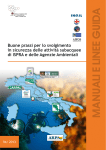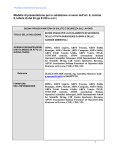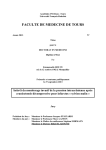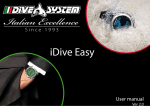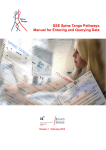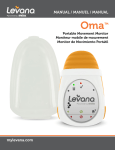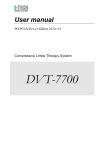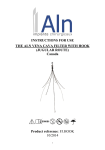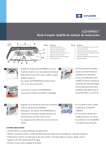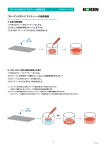Download information pack - NHS Improving Quality
Transcript
NHS Improving Quality IPC Sleeve Programme Information for participating stroke units Improving health outcomes across England by providing improvement and change expertise IPC Sleeve Programme overview Welcome to the IPC Sleeve Programme Welcome to the NHS Improving Quality (NHS IQ) intermittent pneumatic compression (IPC) sleeves programme. Your local Strategic Clinical Network (SCN) has agreed to support all the stroke units in the SCN area to implement the use of IPC sleeves for immobile stroke patients as part of a major national initiative. This pack has been designed to provide you with as much information about the programme as possible. Thank you for taking part in this important initiative. If you have any questions or need any support at any stage please contact your SCN lead in the first instance or email [email protected] What is the IPC Sleeves Programme? • • • • Established on 1 April 2013, NHS Improving Quality (NHS IQ) is the driving force for improvement across the NHS in England. NHS IQ has secured £1m of ‘pump priming’ funding for 2014/15 to purchase six month’s supply of intermittent pneumatic compression (IPC) sleeves for all stroke units in England as part of a major national programme to improve outcomes for stroke patients. Deep vein thrombosis (DVT) is a common cause of death in immobile hospital patients, but is potentially avoidable. Stroke patients have a high risk of developing DVT, but the recent CLOTS 31 study showed that the use of IPC sleeves led to around a 30% relative reduction in DVT and an improvement in overall survival to six months. IPC sleeves have been used for several years in surgical patients, but this will be the first major use in medical patients. It is hoped that the initiative will not only support the rapid implementation of IPC sleeves in stroke units, but also lay groundwork for the implementation of updated NICE guidance and ultimately, improve outcomes for stroke. patients. 1 - The Lancet, Volume 382, Issue 9891, Pages 516 - 524, 10 August 2013 doi:10.1016/S0140-6736(13)61050-8 What are IPC sleeves? Intermittent Pneumatic Compression or ‘IPC’ sleeves are used to prevent DVT. They comprise a pair of inflatable sleeves which wrap around the leg and are secured by Velcro. The IPC sleeves are attached via flexible tubing to a small bedside electric pump. The sleeves may be short, wrapping around just the lower leg, or long to wrap around the thigh as well. They are inflated one side at a time to compress the leg at intervals to force fluids out of the pressurized area. A short time later, the pressure is reduced, allowing increased blood flow back into the limb. The evidence base CLOTS 3 trial • The CLOTS 3 trial was a multicentre randomised controlled trial (RCT) testing the effect of applying Intermittent Pneumatic Compression (IPC) to patients immobilised by a recent stroke. The results were published in the Lancet on 31st May 2013. The paper, and related media clips can be accessed at www.clotstrial.com by clicking the “Results” button. • The trial showed that IPC was feasible and safe. Most importantly IPC was associated with a 30% relative reduction in DVT (p<0.001) and a 14% improvement in overall survival to six months (p=0.042). CLOTS 3 trial • • Although low molecular weight heparin reduces the risk of DVT, it is associated with a greater risk of serious bleeding and NO improvement in survival or functional outcomes. Apart from stroke unit care, and decompressive hemicraniectomy, it is the only acute stroke treatment which has been shown to improve survival. It seems very likely that future editions of the NICE VTE and RCP stroke guidelines will recommend IPC for immobile stroke patients admitted to hospital. IPC sleeve programme practicalities How will the programme work? • NHS IQ has secured sufficient funding to bulk purchase enough IPC sleeves to supply each stroke unit in England for a six month period. • NHS Supply Chain has negotiated a substantial discount on the cost of the sleeves with the supplier (Covidien) on NHS IQ’s behalf and has agreed to handle the distribution. • As part of the deal brokered by NHS Supply Chain, Covidien will supply each unit with the necessary number of pumps, training for staff and maintenance where needed. • The ‘free’ sleeves will be delivered in 3 consignments over the six month period. • To help monitor the impact of the programme, stroke units will be required to complete the relevant section (section 9) of the Sentinel Stroke National Audit Programme (SSNAP) in order to receive their next consignment of sleeves. Why have the Covidien sleeves been chosen over other IPC sleeves? • There are many different types of IPC (calf or thigh-length, single or sequential, asymmetric or circumferential, fixed or variable frequency, rapid or slow inflation). However, we can only be confident that the system used in the CLOTS 3 trial will be effective. The CLOTS 3 trial tested the Kendall SCD Express compression system. • Only thigh-length sleeves were tested in CLOTS 3. • Two types of sleeve were used in CLOTS 3, the “Original” sleeves and the “Comfort” sleeves, the latter introduced to enhance patient adherence. Although the differences were not huge, there was definite trend towards better adherence and effectiveness with the Comfort sleeve. • The IPC sleeves purchased under the NHS IQ IPC sleeves programme are the same sleeves used in the trial, i.e. Kendall SCD Express Thigh-length Comfort Sleeves. How will stroke units be supplied? • • • • • • NHS Supply Chain will make three deliveries direct to stroke units over the six month period (i.e. a third of the allocation at a time). Deliveries will take place in April, July and September 2014. Exact dates will be advised closer to the time. Units that join the programme after April 2014 will receive their allocation across two deliveries (i.e. half each time). Participating units MUST notify SCN leads of their six digit requisition point number to ensure that the delivery goes straight to the appropriate unit/ ward and is not rejected because it can’t be tied up to a purchase order. Sleeves supplied as part of the NHS IQ programme will bear a product description and a unique National Product Code (NPC) which relates to the NHS IQ programme. Covidien will deliver the controllers and reusable tubing used to inflate the sleeves during April 2014 either in advance or on the day of the first training session (dates to be advised). How will I identify sleeves supplied as part of the NHSIQ programme? Contract ID AA120902 AA120902 AA120902 AA120902 Base description EGD7906 Ipc sleeve with vascular refill detection Kendall SCD Comfort thigh length extra small NHS IQ IPC Programme 74010 Case 5 EGD7907 Ipc sleeve with vascular refill detection Kendall SCD Comfort thigh length small NHS IQ IPC Programme 74011 Case 5 EGD7908 Ipc sleeve with vascular refill detection Kendall SCD Comfort thigh length medium NHS IQ IPC Programme 74012 Case 5 EGD7909 Ipc sleeve with vascular refill detection Kendall SCD Comfort thigh length large NHS IQ IPC Programme 74013 Case 3 Brand Secondary description Unit Of Purchase Units Unique NPC MPC Unit Of Purchase How many sleeves will my unit receive? • • • • • An allocation of sleeves has been calculated for each stroke unit in England using the expected number of stroke admissions per unit, based on data from the Sentinel Stroke National Audit Programme (SSNAP). We have assumed that up 60% of these patients will be immobile and have allowed for 2 pairs of IPC sleeves per patient. The table opposite gives an example calculation. We have applied as much precision to the calculations as possible but in any event there should be sufficient supply to cater for all appropriate stroke patients. We have made Covidien aware of the required number of sleeves to ensure sufficient stock is available for the programme Specific details for each unit will be supplied via your SCN Expected number of stroke admissions per year 688 Number in six months 344 Assume 60% of patients admitted are immobile 206 Number of IPC sleeves needed 412 to allow 2 pairs per patient How much storage will units need? • • • • • You will need to arrange for sufficient space to store the IPC sleeves, control units and tubing. The table opposite shows the size of the boxes for each type of sleeve. Your SCN will let you know how many boxes of each type of sleeve your unit will receive (based on the ratios in the CLOTS 3 trial). Please liaise with your stock control / logistics team to work out the best storage solutions for your unit. Remember only a third of your total allocation will be delivered each time. Height MM Width MM Depth MM 182 347 330 182 340 335 182 340 335 121 477 347 Item Comfort thigh length extra small Comfort thigh length small Comfort thigh length medium Comfort thigh length large How will training be delivered? • Covidien will begin training unit staff once the first delivery of IPC sleeves has been made and we anticipate all units will have received training within six weeks of the first delivery. • Training options include: – Basic ward / department based – enables staff to measure and fit IPC sleeves correctly, covers the appropriate choice and use of garment, care and maintenance, cleaning, contraindications and troubleshooting. – Advanced ward / department based– covers the topics listed above, as well aetiology of the disease, thrombi formation, risk factors and supporting clinical evidence. – Train the trainer – covers all points from the basic and advanced sessions and involves interactive and practical demonstration in order to confirm staff member’s competence to roll out training to others. • A detailed training schedule will be available in the near future and will be shared with you by your SCN. What will happen when the programme ends? • The programme has been designed to make the use of IPC sleeves part of the ‘usual care’ for stroke patients. • For the pump-priming arrangement we have negotiated a substantial discount on the sleeves and NHS Supply Chain are working hard on our behalf to pave the way for favourable long term arrangements. • We are planning to produce a template business case to support units in purchasing sleeves after the six month programme ends. Our unit is already using IPC sleeves, can we still take part? • We are aware that some units may already be in discussion with Covidien about sleeves and pumps. • We are working with NHS Supply Chain and Covidien to ensure that all units who sign up through their SCN and complete SSNAP will be able to take advantage of the free sleeves. • Covidien have given assurances that units and Trusts who participate in the NHS IQ programme will not be penalised in any way in terms of current or future contracts. I still have questions! • We realise that there are likely to be more questions about the programme. In the first instance please contact your SCN lead. Alternatively you can email us at [email protected] Using IPC Sleeves in stroke patients Overview • The following information has been adapted by NHS Improving Quality by kind permission from material produced by Prof Martin Dennis, Chief Investigator of CLOTS 3. • It is intended to support stroke units to implement the NHS Improving Quality IPC sleeve programme, however it does not replace the training that will be provided by Covidien on the correct use of the Kendall SCD device in stroke patients. Which patients should be treated? • • • • • Patients with acute ischaemic or haemorrhagic stroke who are: for active treatment (i.e. not simply for palliation) immobile (unable to walk independently to the toilet) willing to wear compression sleeves not suffering contraindications to IPC – severe congestive heart failure – severe skin problems on legs – severe peripheral vascular disease – Suspected or pre-existing deep venous thrombosis. When should IPC sleeves be used and for how long? • IPC should be applied as soon as possible after admission and definitely within the first 3 days. IPC should be taken off (whichever comes first): – – – – when the patient becomes independently mobile at discharge from hospital if the patient develops any adverse effects by 30 days. • It is not recommended that patients are sent home or to nursing homes with IPC equipment. How should sleeves be applied? • • • • The sleeves can be applied to patients’ bare legs, or over pyjama trousers or stockings. They should not be used in combination with graduated compression (TED) stockings which will increase the risk of skin problems and are not associated with any reduced risk of DVT. The sleeves should be kept on for as much of the time as possible, ideally day and night. Intermittent use of this system is not recommended. If the patient is not willing to wear the sleeves on both legs, a single sleeve can be applied, most effectively to the weaker leg in which DVT is more likely to develop. Patients can wear sleeves in bed, when sitting or standing, during physiotherapy or transfers. If taken off during physiotherapy or bathing they should be replaced as soon as possible. If they are accidentally left off for a day or two, there appears to be no risk in re-applying them. Patients who are immobile may also be incontinent. The sleeves are low down on the thigh so patients who are incontinent should not require changing sleeves every morning because of urinary incontinence. However, we have made provision for 2 pairs of sleeves per patient in case one pair becomes soiled. How should use of IPC sleeves be monitored? • We would recommend that ‘intermittent pneumatic compression’ is written on the patient’s medication chart, with three times ringed/ticked to remind nurses to check that it is applied each day. • The NHS IQ IPC sleeves programme requires that units complete the relevant section (section 9) of the Sentinel Stroke National Audit Programme (SSNAP) in order to receive their next consignment of sleeves. What happens if a patient develops a DVT? • The manufacturer’s instructions (operation and service manual) state that the use of this type of sequential compression device in patients with a suspected or existing DVT is contraindicated. Full training • The information here is intended as a brief introduction to IPC sleeve use. Full training to ensure competency will be provided by Covidien as part of their training programme.




























